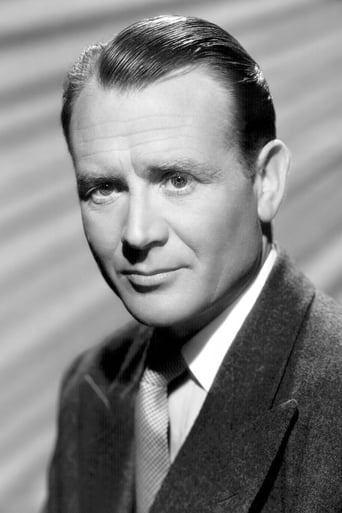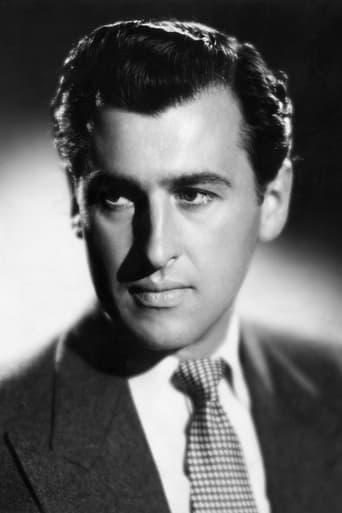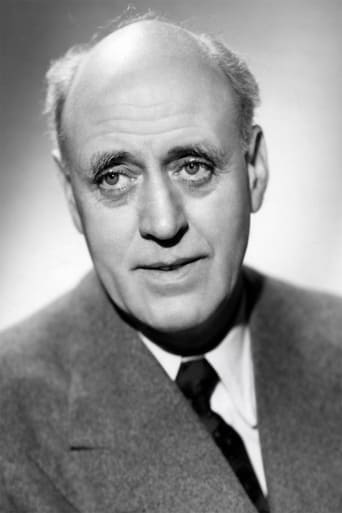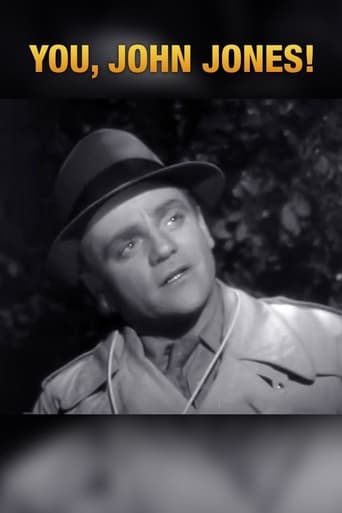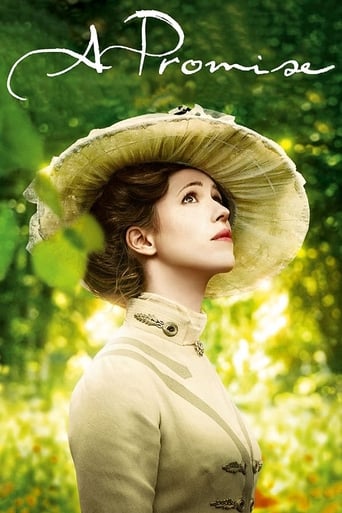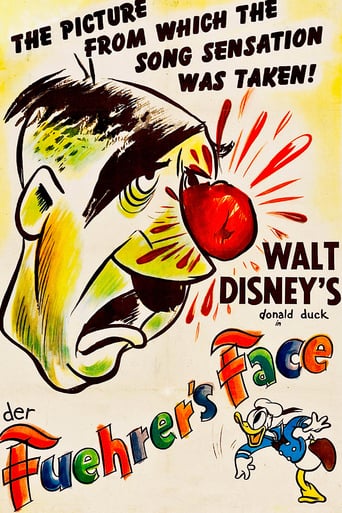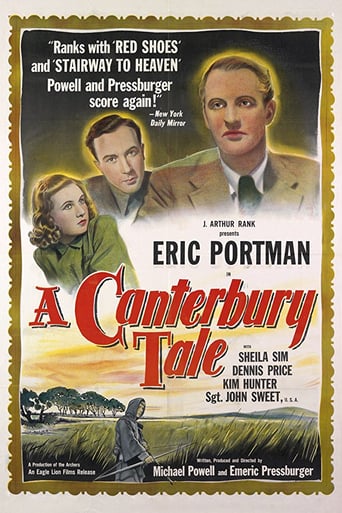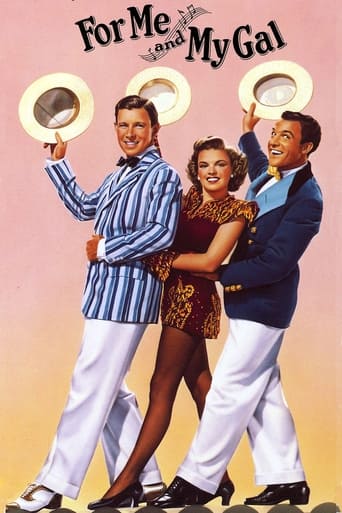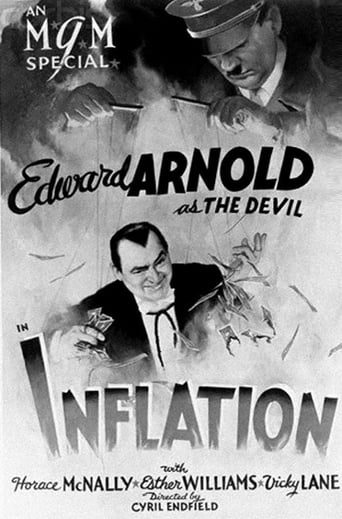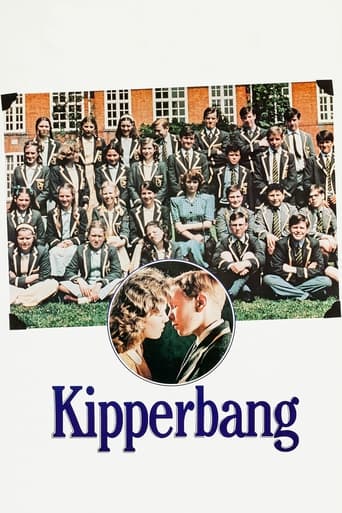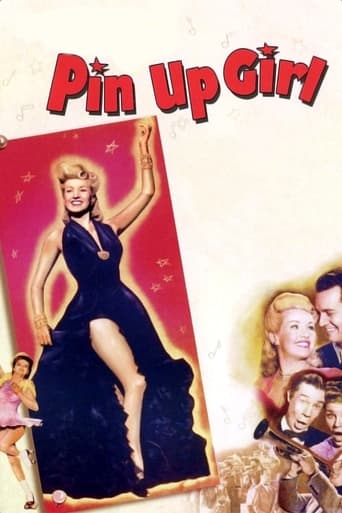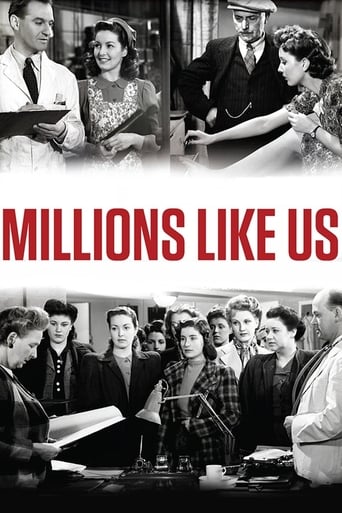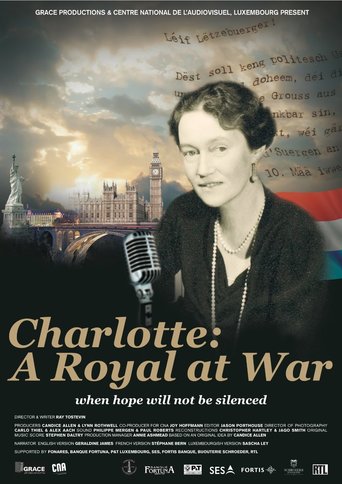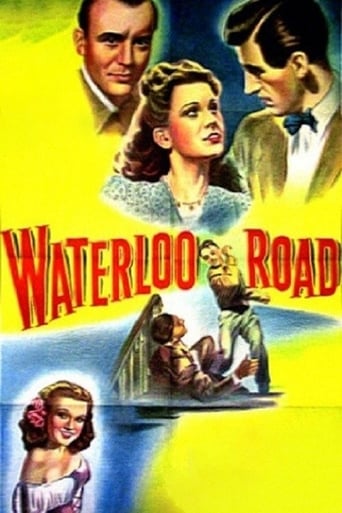
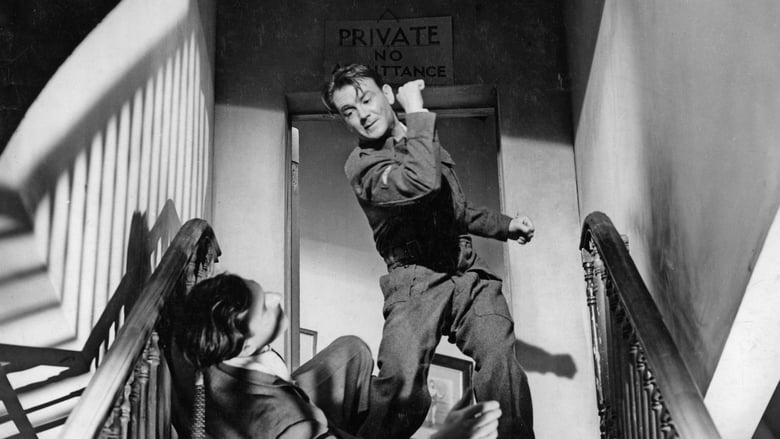
Waterloo Road (1945)
During WW2 a former railway employee who had been drafted, goes AWOL to hunt down the spiv and draft dodger who is having an affair with his wife.
Watch Trailer
Cast


Similar titles
Reviews
It's no definitive masterpiece but it's damn close.
hyped garbage
While it doesn't offer any answers, it both thrills and makes you think.
The film never slows down or bores, plunging from one harrowing sequence to the next.
"Waterloo Road" is a wartime melodrama set in England. The film opens at the end of 1944 or early 1945 with scenes of the destruction from the Blitz of four years earlier. The meat of the story occurs in a flashback to the winter of 1940-41 when London and other cities were under the German Blitz. The movie was released in the U.K. on Feb. 5, 1945. Since the D-Day landings at Normandy on June 6, 1944, the Allies had pushed Germany out of most of occupied Europe and were at its gates. The Battle of the Bulge (Dec. 16, 1944 to January 25, 1945) was the last German offensive and desperate effort to turn the war. With the final Allied victory and the Russian victories on the Eastern Front, Germany's ultimate defeat was certain Yet, some people see "Waterloo Road" as propaganda. One must wonder what in this film would be considered propaganda. The outcome of the war was certain in time, and there's hardly any mention of the Axis enemies. So, what is the political cause or point of view that the film is promoting? What type of propaganda and for what purpose? What are the film's messages to the viewing public? Is it a warning to wives about being faithful to their husbands who are in the service? It's nearing the end of the war – a fine time to do that. The film clearly puts down draft dodgers, black marketers ("spivs" in the British slang of the time), and dandies out of uniform who chase the girls back home. But where is the film misleading or biased? Rather, I think it's a film, as the billing says, about marital fidelity, attempted adultery, profiteering by unscrupulous elements, and military desertion at the start of the war. If anything, the film at the end seems to be a morale builder. The last scene has Dr. Montgomery surveying the destruction of his neighborhood and talking about the young people and their children whose job it will be to rebuild their nation. The movie has some of the top British stars of the day in the male leads. John Mills is private Jim Colter; Stewart Granger is the draft-dodging spiv and dandy, Ted Purvis; and Alastair Sim is Dr. Montgomery. These actors and the lead females all play their roles very well. The only thing that seems a stretch to believe is the light treatment of Colter by the military when he goes AWOL (absent without leave). Desertion in time of war is particularly heinous and carries heavy penalties – even death. Clearly, Colter isn't deserting but is going AWOL so he can go home to try to keep his wife and stave off Purvis. The screenplay treats his pursuit, capture and return to his unit lightly. Again, the cast all do a good job. Some reviewers, who apparently know more about Mills as a mild-mannered person, can't imagine him coming out on top in a fight with Granger. But in this film, Colter is a soldier who probably had considerable training in self-defense and fighting. He wears a beret, so he may have been a member of the tough British 1st Airborne Division. Purvis had been a prizefighter and probably knew some street fisticuffs. But, he was out of condition, as he says himself. And, he had a bad heart – in reality (as Dr. Montgomery confirms at the end). That would have drained him of some strength in the first place. Then there's that element of adrenalin, fire, and extra strength that comes to a man who has something to fight for and protect. That is Colter and his wife and marriage. Whereas, Purvis had none of that. Overall, this is an interesting enough film, and worth viewing because it's an unusual wartime story. I noted its original release early in 1945 in England, while the war was still underway. One wonders if the subject wasn't a very touchy matter at the time in America as well. Why else would "Waterloo Road" not be released in the U.S. until late December 1948 – more than three years after the end of the war?Incidentally, author Ian Fleming appears in the film in an uncredited role. He is an officer in the railroad station, but darned if I could spot him.
It may well have passed muster at the tail end of the war but seen today the flaws are there for all to see. Stewart Granger's working class accent is a joke and his wooden, over-the-top acting little better. John Mills phones it in as the 'decent' man who goes AWOL when he hears that wife, Joy Shelton, is stepping out with Granger's spiv whilst he, Mills, is doing his bit. The two best performances by a mile are turned in by Beatrice Varley and Alison Leggatt as Mills' mother and sister and Jean Kent weighs in with a passable cameo but the climactic fist fight between Purvis (Granger) and Colter (Mills) is embarrassing. Definitely a Waterloo sunset.
Waterloo Road, made towards the end of World War II, tells the story of a young squaddie played by Sir John Mills, who having heard about his wife running around with a no good local operator, goes AWOL to basically find his erring wife and give the chap in question a good old thick ear.Despite that being the entire plot in a nut shell, it is a fantastic piece of wartime nostalgia and a rather entertaining and charming little film to boot.It is chockablock full of air raids, wardens, shelters, old fashion saloon bars, and its cast list is practically a cinematic who's who of British Wartime cinema, although it is the two male leads that really steal the film.Stewart Granger is a thoroughly unlikable fellow in this film as the draft dodging spiv with a million brave guys wives to chose from and he plays his part magnificently, although at times his cockney slang-ridden accent does slip into his more characteristic well spoken Britisher.Sir John Mills was never really used much in the guise of a physical tough guy, and after watching Waterloo Road it is not too hard to understand why. Despite the consummate and expert actor he undoubtedly was, he was on the whole, officer/ministry material and the fisty cuffs he displays in Waterloo Road, although well choreographed is not how the most majestic of our British acting knights should be perceived or indeed behave.The final outcome of the Mills/Granger bout was also a little unbelievable, which is why they probably had Granger clasp his heart halfway through, as I'm sure in reality, Granger would have torn him to shreds, with the audience all to aware of the fact.But still a pleasant little wartime ditty in to South London. Give it a go.
"Waterloo Road" deserves to be better known than it is. If, like me, you were born after the war, it is a fascinating glimpse of a time gone by, but don't watch it for that alone. It is a story about ordinary people in wartime, without heroics and melodrama, but with an abundance of character and incident. The characters struck me as being true to life, and I didn't find a jarring line of dialogue or a scene which dragged. John Mills gave a fine performance as a soldier gone AWOL, and Stewart Granger as the cad out to seduce his wife. All in all, a wonderful little film.


